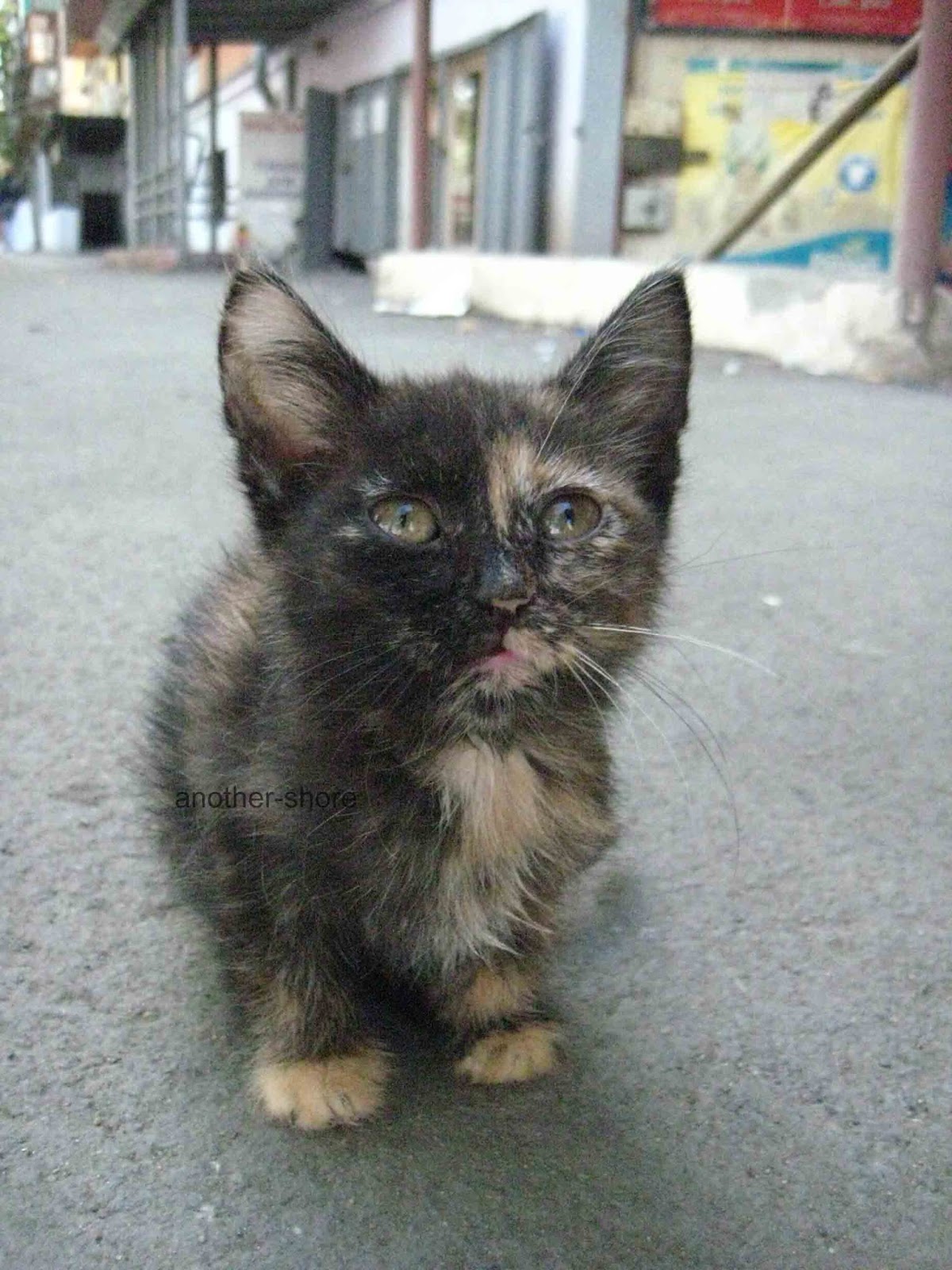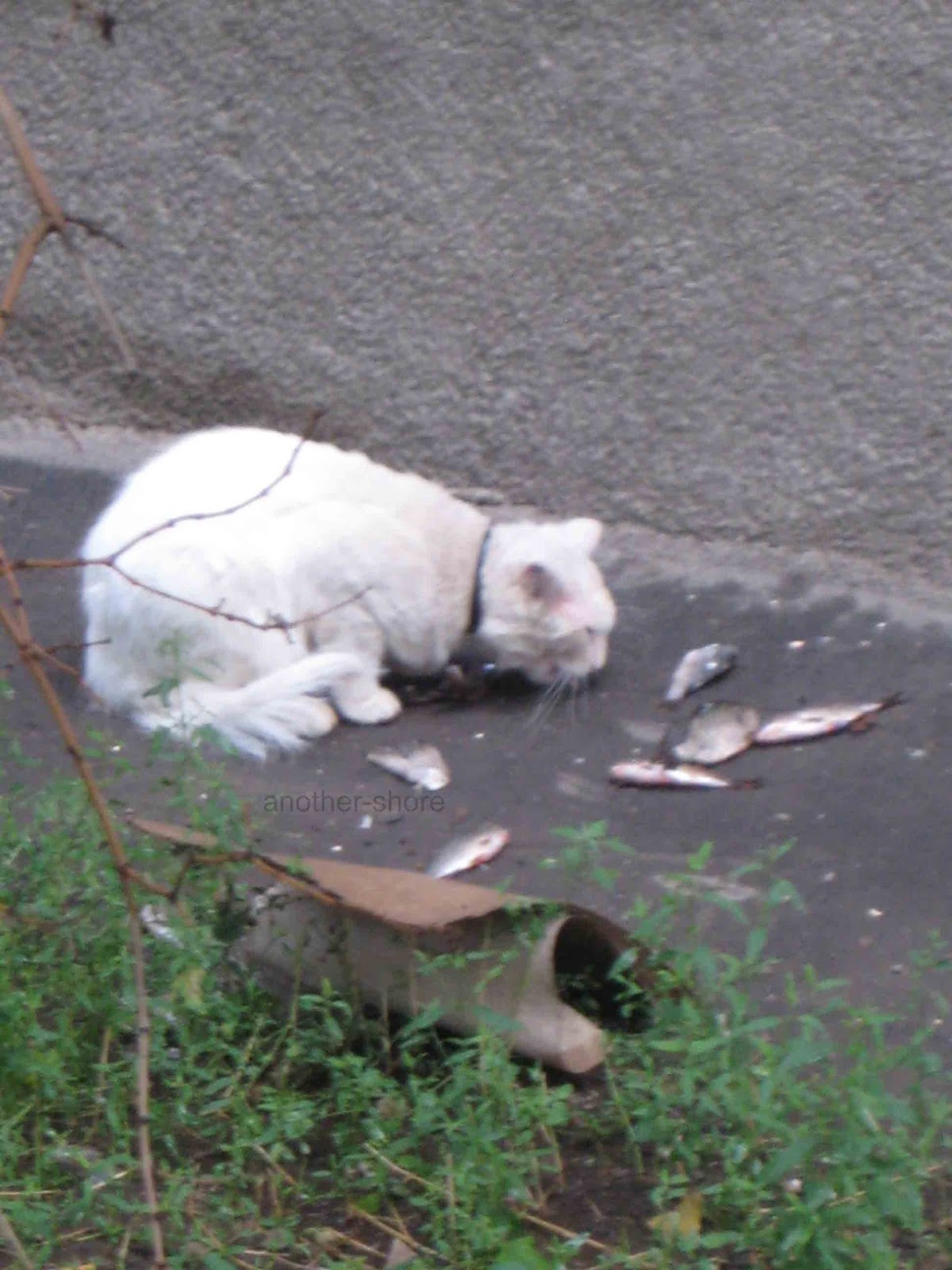 |
| No collar, no home |
Stray Dog Attacks and Doghunters in Russia
In Siberia, I soon noticed the number of dogs on the street, in stark contrast to in the UK. They often hung around kiosks or bus stops, anywhere where food was sold, in the hope of picking up a few scraps. Warmth was also a necessity and consequently they were often found near exposed water pipes, which channelled hot water around the city for apartment blocks' heating systems. Dogs also begin to form packs, which can cause problems for the inhabitants when they attack them, 16,600 such attacks in Moscow in 2008. There are reported 35,000 stray dogs in Moscow alone and the city's plan to house and sterilise these animals is costing about £38million over 3 years, a lot of money. Unofficial action has taken the form dog-hunting vigilantes to eradicate dogs from the streets, but this is a mix of people doing something as humanely as possible for the right reasons to protect people from attacks and an excuse for others to exercise psychopathic tendencies.
 |
| Man versus dog |
No One Cares About Cats
As for cats, there are no municipals facilities to deal with strays. From my observations, there are a handful of cats around in Siberia in warmer weather but not in winter. In the south, though, places like Tatarstan or the Black Sea coast, there are swarms of them in summer. Waves of fur with unfeasibly huge eyes, meowing attuned to your emotions and pulling at your heartstrings like a desperate child tugging on its parents' arms. "You can't take them all home, you can't take them all home..." becomes your mantra.
 |
| How can you resist? |
Animal Charities in Russia?
There doesn't appear to be any nationwide charities akin to our RSPCA in Russia; if there are then they certainly do not enjoy anything like the same profile. However, there are some charities in different cities springing up now, run by kind-hearted individuals, as well as such people working alone. Perhaps this indicates that attitudes are beginning to change for the better. Many Russians do look after a pet and treat it like a member of the family - the beloved Spike is given raw meat - fresh and lean, none of the tinned stuff! Sadly though, there are too many for whom animals are a toy: tired of it - kick it out; needs a vet - kick it out. From family's reports of taking a pet to the vets and the aftermath, it even sounds like certain vets are slapdash, for example a cat picking up a feline coronavirus after a visit to a vet's, described as 'not as clean as it should have been'.
 |
| Spike, the cat, is the only one who thinks he isn't pampered. |
Russian Attitudes to Pets
There's no excusing shoddy professionalism but I can kind of understand a certain degree of indifference towards animals, though do not excuse it in the slightest. Struggle and uncertainty have been a way of life for many Russians for generations and many can only dream of luxuries which we in Britain consider to be ordinary. If you are going without, your priority is to feed yourself and family first. Animals can become something extra, a luxury, not a family member.
 |
| Number one member of the family, pictured here with Lily |
Responsibility in School?
Having said that, it is a responsibility to take on an animal, a duty which may last decades (unless it's a hamster!). Here, I think education is important; that would deal with the causes rather than treating the symptoms. School children should learn what a responsibility it is. Lily, my wife, has spoken of school trips to a local petting zoo and related extra-curricular activities. This would appear to be an exception according to LAPA, a British-based charity for animals in Russia, who say that there is no official education in school about animal welfare. Education could bring about the social change that is required for an issue like this but is, of course, not a quick fix, possibly a generation.
The Government's Stance
This also needs to be supported by the Russian government. At present, the government's attitude is more miss than hit. The answer to the problem of stray dogs in Sochi before the winter Olympics was to kill them and prosecutions for animal cruelty are rare and limited to crimes "committed out of hooliganism, for profit or in front of minors". Unacceptably weak, but sadly not unique - five American states have no felony laws for animal cruelty.
 |
| A stray in Adler, near Sochi. |
Wider Implications?
But this isn't just about animals: it's about people too. Research often suggests links between animal cruelty and crime: 90% of homes where there's domestic violence or child abuse also have evidence of animal cruelty and is common in the history of rapists and serial murderers. These are crimes of control and power and pets are defenseless compared to their owners. You can measure people and countries by how they treat the weak and needy. The Russian government can lead by example in how it chooses to deal with and protect this weaker element of the world around us; this sends out a wider signal as to how we should treat less empowered members of society, which is good for us all now and when we find ourselves in positions of need.
 |
| Defenseless |
A cute little kitty, homeless on the street is a sad sight in itself, but it also reflects wider problems in Russian society and indicates where it still needs to develop to everyone's benefit. Hopefully, the government will implement stricter laws soon, but I wouldn't hold your breath; it's quicker to being with yourself. You can begin by helping this Russian animal charity.

No comments:
Post a Comment